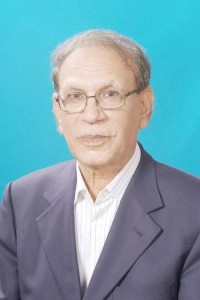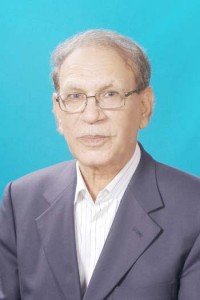Recently, Indian TV channel NDTV reported that Indian defence attaché in Kabul S.K. Narian was arrested for raping an Afghan girl student who had applied for scholarship. He was later ordered to leave Afghanistan. However, no case appears to have been registered against him. The report added that many military officers in the past were involved in rapes and were even punished. In 2007, Major General A.K. Lal was court-martialed. Indian army spokesperson had said that such cases were not highlighted so that Indian military personnel are not demoralized. Indian Army has been rocked by series of indiscipline and corruption cases vis-a-vis land, liquor, sex, and other scams involving even General officers commanding. In September 2013, Lt. Colonel Ajay Chaudhary was arrested for smuggling 24-crore worth of illegal drugs to Myanmar. However, military personnel are accused of moral turpitude and gross misconduct as well.
Reports abound that India’s security forces use torture and rape as a weapon to punish, intimidate, humiliate and degrade the victims in Kashmir and elsewhere in India. The pattern of Army’s misconduct was also observed when contingent of Indian army performed duties as UN peacekeeping mission abroad. In Congo, army personnel had raped women that resulted in unlawful pregnancies. Twelve officers and thirty nine soldiers were probed in Meerut, Uttar Pradesh, India, for sexually abusing the local women and for having fathered children while on UN peacekeeping mission in Congo in 2008. UN Commission found DNA evidence of children born to Congo women, having distinct Indian features. UN authorities are putting pressure on Indian Government to investigate the issue. The Indian soldiers had exploited women of Congo, and sexual abuse cases reached to hundreds.
These girls and women were raped either through coercion or by taking advantage of hunger to provide food items and Indian-made cosmetics. UN authorities had ordered DNA tests and asked Indian government for legal proceedings against these officers and soldiers. In March 2008, three officers were charged with sexual abuse of a local woman while on a holiday in South Africa. However, there is no parallel to the atrocities perpetrated on Kashmiris in Indian Held Kashmir where Indian soldiers’ stories of rape and murder are very common. In order to suppress the freedom movement in IOK Indian Army used religious prejudice and hatred against Muslims while using rape as a weapon against Kashmiri women, whereas the Indian authorities turned a blind to their heinous crimes. Hence, the habitual criminals got away with their crime against Muslim women in IOK.
On 29th May 2011, a complete shutdown was observed in Shopian town in Indian occupied Kashmir to mark the second anniversary of rape and murder of two Kashmiri women, Aasiya and Neelofar by Indian soldiers. Nevertheless, some human rights organizations have been exposing Indian soldiers and officers involved in sex scandals and rapes. The Indian government had started crackdown against Kashmiris in the disputed territory of Kashmir in January 1990, after Kashmiris had started armed struggle in 1989. Rape by Indian security forces most often occurs during crackdowns, cordon-and-search operations during which men are held for identification in parks or schoolyards while security forces search their homes. In these situations, the security forces frequently engage in collective punishment against the civilian population by assaulting residents and burning their homes.
Three Indian Army officers deputed to the United Nations peacekeeping force had been accused of rape. A Lieutenant Colonel and two Majors of the Indian Army, presently with the North Kivu brigade of the Mission of the UN in the Democratic Republic of Congo (MONUC), were detained last Wednesday by South African police after a woman resident of Plettenberg Bay in Pretoria charged them with rape. They were away from MONUC headquarters in Kinshasa on a holiday to Pretoria. The three officers were picked up from a bed-and-breakfast hotel in Mossel Bay on March 12, 2008 and kept in police custody for more than a day. Sources had said that the incident first came to light during a meeting with a South African delegation on defence cooperation in New Delhi in first week of March.
A senior Army officer was asked to ascertain the facts and suggest measures to sort out the embarrassment. Later, an officer from the Indian Embassy in Johannesburg was rushed to Plettenberg and the three were released from the police station. Sources told The Indian Express that then Defence Minister A. K. Antony had asked for a report on the incident on how the officers managed to go to the “unsecured place” while with the UN. In India also, because of widespread disaffection due to atrocities perpetrated by the army and inept policies of Indian government, law and order situation in all 13 Naxal affected states such as Chhattisgarh, Maharashtra, Madhya Pradesh, Eastern Uttar Pradesh, Jharkhand, West Bengal, western Orissa and Bihar is hopeless. India faces insurgencies in Nagaland, Mizoram, Assam, Bodoland, Manipur and Tripura also where it is using heavy-handed methods and use of brutal force to quell the unrest.
- Latest
- Trending




